Do skin products seem like they are in another language to you? Terms such as ‘hypoallergenic’ and ‘fragrance-free’ are used often, but what do they really mean?
Hypoallergenic, is used to describe a lot of sensitive skincare products and it suggests these products are less likely to trigger an allergic reaction. However, this doesn’t translate to a guarantee of being free from all chemicals that could potentially trigger your allergies. It simply implies that these products have been formulated with fewer of the ingredients known to cause allergies.
Fragrance-free might bring to mind a product without any obvious scent, but this can be misleading. Going fragrance-free means the product hasn’t been intentionally infused with additional fragrances to mask the unpleasant smell of other ingredients. It doesn’t mean the product won’t have a scent that comes from its ingredients, including essential oils.
Understanding the difference between hypoallergenic and fragrance-free can help prevent unnecessary skin irritations or allergic reactions. With this knowledge, you can make informed decisions about the products you choose to apply to your skin or introduce into your environment.
Common Sense hand sanitizer provides a solution that caters to sensitive skin needs, being both hypoallergenic and fragrance-free. This means it’s less likely to trigger allergic reactions and doesn’t contain any added fragrances or masking scents, ensuring a gentle and safe experience for all skin types.
Decoding Skincare Labels: Fragrance-Free vs Unscented
When it comes to skincare, understanding product labels is crucial. The terms ‘fragrance-free’ and ‘unscented’, often used interchangeably, actually have distinct differences. This becomes particularly important for people with sensitive skin or a fragrance allergy.
Understanding the Fragrance-Free Label
Fragrance-free refers to products where no additional fragrances or masking scents have been added. This doesn’t mean the product will be devoid of any smell. The natural aroma of the ingredients may still be present. Products labeled hypoallergenic often fall under the fragrance-free category, as they are designed to minimize allergens, including potentially irritating fragrances.
The Truth About Unscented Products
Contrary to its name, ‘unscented’ doesn’t mean the product is free from fragrances. In fact, unscented products may contain chemicals that neutralize or hide the odors of other ingredients. These masking scents are used to make the product smell neutral or odorless.
Why It Matters: The Impact on Skin Health
According to the Environmental Protection Agency, fragrances rank among the top five allergens worldwide. For individuals with a fragrance allergy, using an unscented product can still lead to adverse reactions because the product might contain hidden fragrance agents. Here, products with a hypoallergenic label can be a safer option.
Additionally, some fragrance-neutralizing chemicals can contribute to clogged pores, leading to breakouts or exacerbating acne. This is where the non-comedogenic label comes into play. Non-comedogenic products are specifically formulated not to clog pores, making them an excellent choice for those with acne-prone skin.
Hypoallergenic and Fragrance-Free Products
The Distinctions and Commonalities
Hypoallergenic and fragrance-free products share a common goal – to minimize skin irritation and adverse reactions for those with sensitive skin. However, their approaches differ.
Hypoallergenic products are formulated to reduce the risk of allergic reactions. This means they avoid using potentially allergenic chemicals in their formulation. On the other hand, fragrance-free products do not contain any added fragrances or masking scents. They’re designed to be free from artificial smells that can often cause irritation or allergies.

It’s important to note that a product can be both hypoallergenic and fragrance-free. This would mean it’s made without potentially allergenic chemicals and without added fragrances.
Which is Better for Sensitive Skin?
The answer to this depends on the individual’s skin sensitivities. If you tend to react negatively to added fragrances, then fragrance-free products would be a safer choice. However, if your skin is more reactive to a wide range of ingredients, hypoallergenic products might serve you better as they avoid many potential allergens.
Non-comedogenic products cater to another skin concern – clogged pores. These products are designed not to block pores, which can be beneficial for those prone to acne. A product could be hypoallergenic, fragrance-free, and non-comedogenic all at once, making it particularly gentle on the skin.
Reading the Label Carefully
Regardless of whether a product is hypoallergenic or fragrance-free, it’s crucial to read the label carefully. Everyone’s skin is unique, and an ingredient that works for one person might cause irritation for another. Always check the ingredients list to ensure the product doesn’t contain any substances you know you’re sensitive to.
Both hypoallergenic and fragrance-free products have their merits when it comes to sensitive skin. It’s about understanding your skin’s specific needs and choosing products that meet those needs, thereby minimizing the risk of skin irritation from a potentially allergenic chemical.
The Role of Non-Comedogenic Products in Skincare
In the quest for radiant, healthy skin, the term ‘non-comedogenic’ often emerges as a key player. But what does it mean, and how does it cater to sensitive skin? Let’s delve into this concept.
Defining Non-Comedogenic Products
Non-comedogenic is a term used to describe skincare products that are formulated to avoid clogging pores. The term ‘comedo’ refers to a clogged hair follicle (pore) in the skin. Non-comedogenic products aim to prevent the formation of these blockages, which can lead to skin issues such as pimples, blackheads, or whiteheads.
How Non-Comedogenic Products Cater to Sensitive Skin
Non-comedogenic products cater to sensitive skin by reducing the risk of pore blockage and subsequent acne breakouts. These products are particularly beneficial for those with oily or acne-prone skin. By avoiding ingredients known to block pores, such as certain oils and heavy creams, non-comedogenic products minimize the potential for skin irritation and breakouts.
Non-Comedogenic, Hypoallergenic, and Fragrance-Free: A Skincare Trilogy
Non-comedogenic, hypoallergenic, and fragrance-free labels all aim to minimize skin irritation and adverse reactions, albeit each caters to different skin concerns.
Hypoallergenic products are formulated to be less likely to cause an allergic reaction. They avoid potentially allergenic chemicals that could irritate the skin or trigger allergies.

Fragrance-free products do not contain any added fragrances or masking scents, making them free from artificial smells that can often cause irritation or allergies.
In the case of Microbe Solutions, our Common Sense sanitizing products provide an environmentally safe, non-toxic formula that forms a layer that bonds to skin and surfaces. This is somewhat similar to how non-comedogenic skincare products work. They prevent blockages from forming, much like how the Common Sense formula prevents germs from forming, leading to lasting protection.
A product can be hypoallergenic, fragrance-free, and non-comedogenic all at once, making it particularly gentle on the skin.
Hypoallergenic and Fragrance Free Personal Care and Hand Sanitizer
Choosing the right skincare products is a personalized journey that hinges on understanding one’s unique skin sensitivities and needs. Whether it’s hypoallergenic, fragrance-free, or non-comedogenic, each label serves a specific purpose to minimize skin irritation and adverse reactions. Just like Common Sense hand sanitizer, non-comedogenic products work to provide a protective layer, preventing the formation of unwanted elements.
However, it’s vital to remember that labels alone don’t determine a product’s efficacy. Reading the ingredients list, knowing what works for your skin, and consulting with a dermatologist are crucial steps in adopting a skincare routine that truly nurtures and protects your skin.

